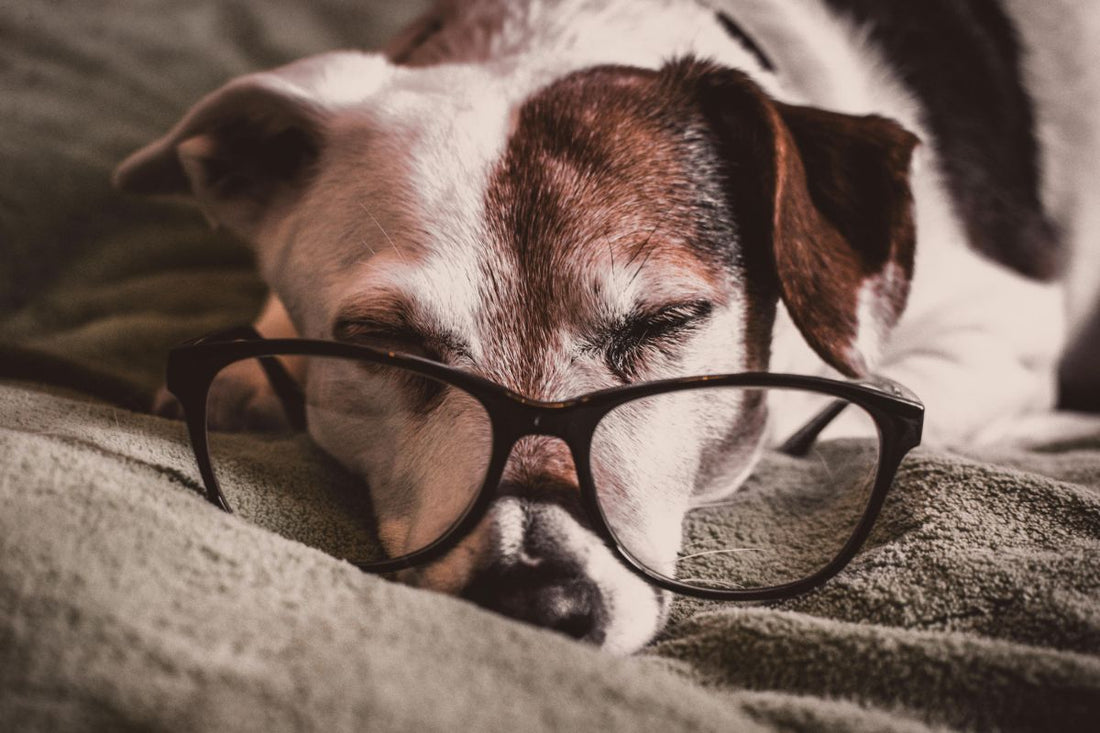
Senior Dog Dental Care: How to Keep Their Teeth Healthy Longer
On This Page:
- Challenges Faced by Senior Pets’ Teeth
- Vet-Approved Oral Care for Elderly Dogs
- Have a Stress-Free Oral Care Routine!
When does a canine become a senior? Well, that depends on the breed. While the lifespan of small pooches is 8-11 years, the medium-sized ones live from 8 to 10 years, large dogs – 8-9 years, and giant ones – 6-7 years. Even though age is not a disease, maintaining dental care for dogs is an essential part of a healthy routine. At Healthywoof.com, we’ve already talked about the importance of healthy dog teeth when you’re a puppy parent. Today, we’ll focus on taking care of your pup's fangs in their golden years.
Challenges Faced by Senior Pets’ Teeth

Photo by Mikhail Nilov from Pexels
Poor oral hygiene causes a wide range of conditions that, in turn, lead to more serious health concerns in older pets, such as heart, kidney, and liver diseases. When it comes to older furry buddies, maintaining a dental routine is a must because their teeth face the following:
- Wear and tear. Due to nonstop use and diet, wear and tear can cause tooth loss. The latter affects your pet’s ability to chew, sensitivity, and their comfort in general. Watch for any changes in eating habits, weight loss, and ensure to get soft dog food for senior dogs with bad teeth.
- Dental diseases. According to the “Dog Owners' Perspectives on Canine Dental Health – A Questionnaire Study in Sweden,” by age 3, more than 80% of woofs develop this or that dental disease. Genetic predisposition, poor diet, and hygiene contribute to the conditions.
- Reduction of salivary flow. You should know that an old Goofy can suffer from dry mouth over time. This is caused by reduced saliva, which is crucial in keeping the oral health level high (saliva helps combat and control bacteria).
- Eww breath. What can be worse than knowing you can’t have those fluffy kisses because your pup’s breath stinks!
- Tumors in the mouth. Senior canines are at higher risk of developing tumors in the mouth. They can affect any tissue.
Vet-Approved Oral Care for Elderly Dogs

Photo by Dominik Gryzbon from Pexels
In our online catalog, you’re sure to find products that best fit your pet’s needs and help them age gracefully. However, in addition to things like chews or green powder for dogs teeth, at-home mouth care is a must, too.
- Brushing. Regular brushing is the solid cornerstone of keeping your older dog’s teeth healthy. Make sure to use vet-approved enzymatic pastes and brushes.
- Daily dental chews. Approved by the Veterinary Oral Health Council, these products are made of natural ingredients known to effectively combat plaque and tartar buildup. Plus, they add nearly zero calories to the pet’s menu, and support sparkling smiles and healthy gums.
- Water additives. One of the best options to freshen breath and reduce bacteria. Keep in mind that water additives aren’t alternatives to brushing; however, they’re a good option for a senior dog tooth extraction recovery.
- Soft rubber toys. If your old buddy is missing teeth, make sure to pay special attention to what types of food and chews you provide. Choose soft treats for dogs with no teeth that won’t irritate the gums. If there are remaining fangs, buy dental chews that do not cause any discomfort or damage to the remaining teeth. In addition to providing treats for dogs with no teeth, take care of their gums. Gently brush them using a soft toothbrush to prevent inflammation and infection.
Have a Stress-Free Oral Care Routine!

Photo by Impact Dog Crates from Pexels
Who said keeping your elderly canine’s mouth clean should be a Waterloo battle? In our blog, we share a lot of tips on how to create the most positive experience for both you and your good boy. Here’s something you can do to make sure your golden-aged doggy is going to enjoy:
- Always start slow. After all, your pet needs time to get used to the whole range of instruments you’re going to use (paste, toys, chews, brushes, etc.).
- Make fun part of the process. All your four-legged friend’s favorite toys and treats should be used as special rewards for this hilarious cooperation.
- Create a routine. Consistency is the key element that all mutts tend to thrive on. In other words, you have to brush and play at the same time every day.
- Keep things fresh. Senior pet owners should rotate toys. All you have to do is pick a different tool for each at-home dental care session. Thus, you’ll keep your pet’s engagement like an ace.

Finally, nothing can replace professional cleanings! No matter how consistent you are in maintaining your pooch’s dental health, only veterinarians can deal with tartar, plaque, and more serious conditions that at-home care can’t address.

